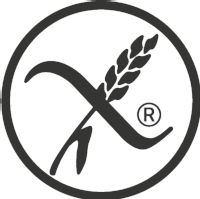Frequently Asked Questions Find everything you need to know about coeliac disease, the gluten free diet and the work we do.
Found 9
Why do products in Section 1 have the Crossed Grain symbol next to them?
We have around two hundred manufacturers supporting our Crossed Grain scheme. Our Crossed Grain symbol is a sign of safety and integrity and so it is important to us to share to the broad range of products that carry our licence.
New companies are licensed regularly, so don't forget to check our monthly updates for any additions. You can find a list of all companies using the Crossed Grain symbol here.
I want to feature in one of Coeliac UK's publications. How can I do this?
Is there a registration fee?
Standard (digital) registration is £10, premium registration is £30 and a multi-person registration for up to four people is £60. Children under the age of 16 will have to be registered by a parent or guardian.
How many hours do you require from volunteers?
It’s entirely up to you how many hours you can give. There are a range of roles requiring different amounts of time – from long term involvement in the Local Voluntary Support Groups to one off projects.
What is the Crossed Grain symbol?
 The Crossed Grain symbol is used under licence by companies and organisations on food and drink products which meet our criteria. The symbol is a quick and easy way to identify safe food and drink. We highlight products using the Crossed Grain symbol throughout our Food and Drink Guide.
The Crossed Grain symbol is used under licence by companies and organisations on food and drink products which meet our criteria. The symbol is a quick and easy way to identify safe food and drink. We highlight products using the Crossed Grain symbol throughout our Food and Drink Guide.
I've heard spelt is suitable for people with coeliac disease. Is this true?
No. Spelt is an ancient strain of wheat and contains gluten. It is not suitable for people with coeliac disease.
Where are fast foods listed now?
We no longer list fast food restaurants in the Food and Drink Guide. We have a separate resource, the Venue Guide, which lists restaurants that are able to cater for people with coeliac disease. Visit www.coeliac.org.uk/venueguide
Allergen information for McDonalds and Burger King can be found on their websites.
Why aren't naturally gluten free foods listed, such as vegetables, bacon and eggs? Can I eat these foods?
Some foods are naturally gluten free. Foods like meat, fish, eggs, fruit and vegetables are all naturally gluten free and so listing these in the Guide would mean the Guide would be unnecessarily large. We list foods on page 6 of the Guide which are naturally gluten free and produce a gluten free checklist which you may find useful. You can download this from the Gluten free diet and lifestyle section of the website. www.coeliac.org.uk/gluten-free-checklist.
Are there any incentives for pharmacists taking part in the Community pharmacy supply of gluten-free foods scheme?
Introducing a pharmacy led supply scheme allows better stock control of gluten-free foods for pharmacists as well as providing a more flexible service to improve the patient experience.
Pharmacists and GP dispensaries are paid a service charge at six monthly intervals for each patient who accesses the service. When the scheme in Northamptonshire was introduced it was run as an Enhanced Service with funding for this element of the contract coming from Primary Care Contracting budgets.